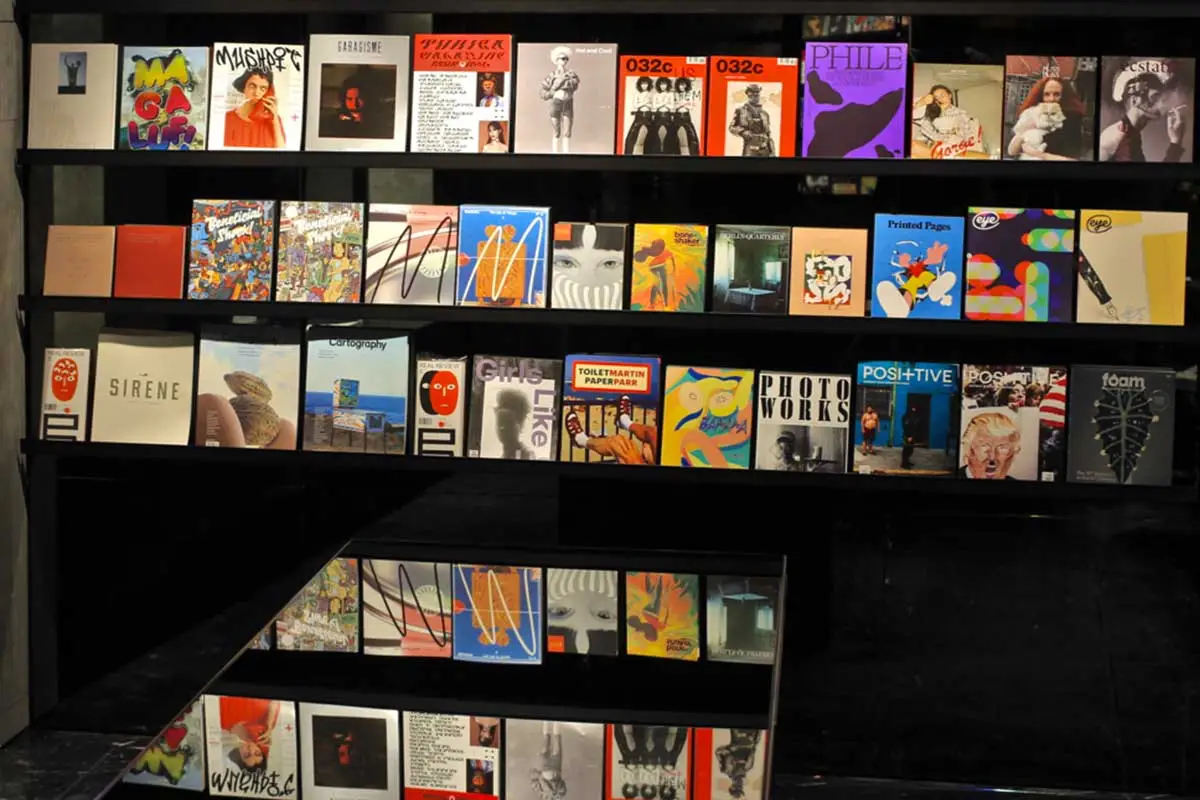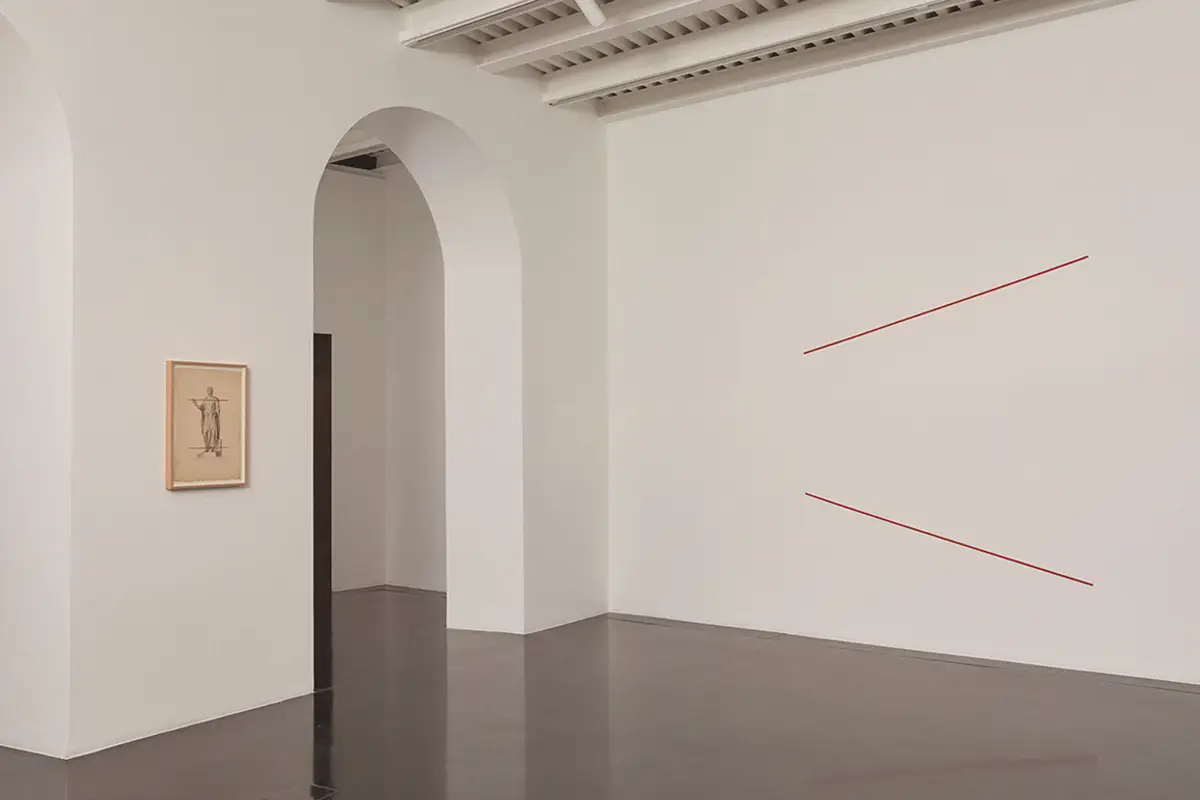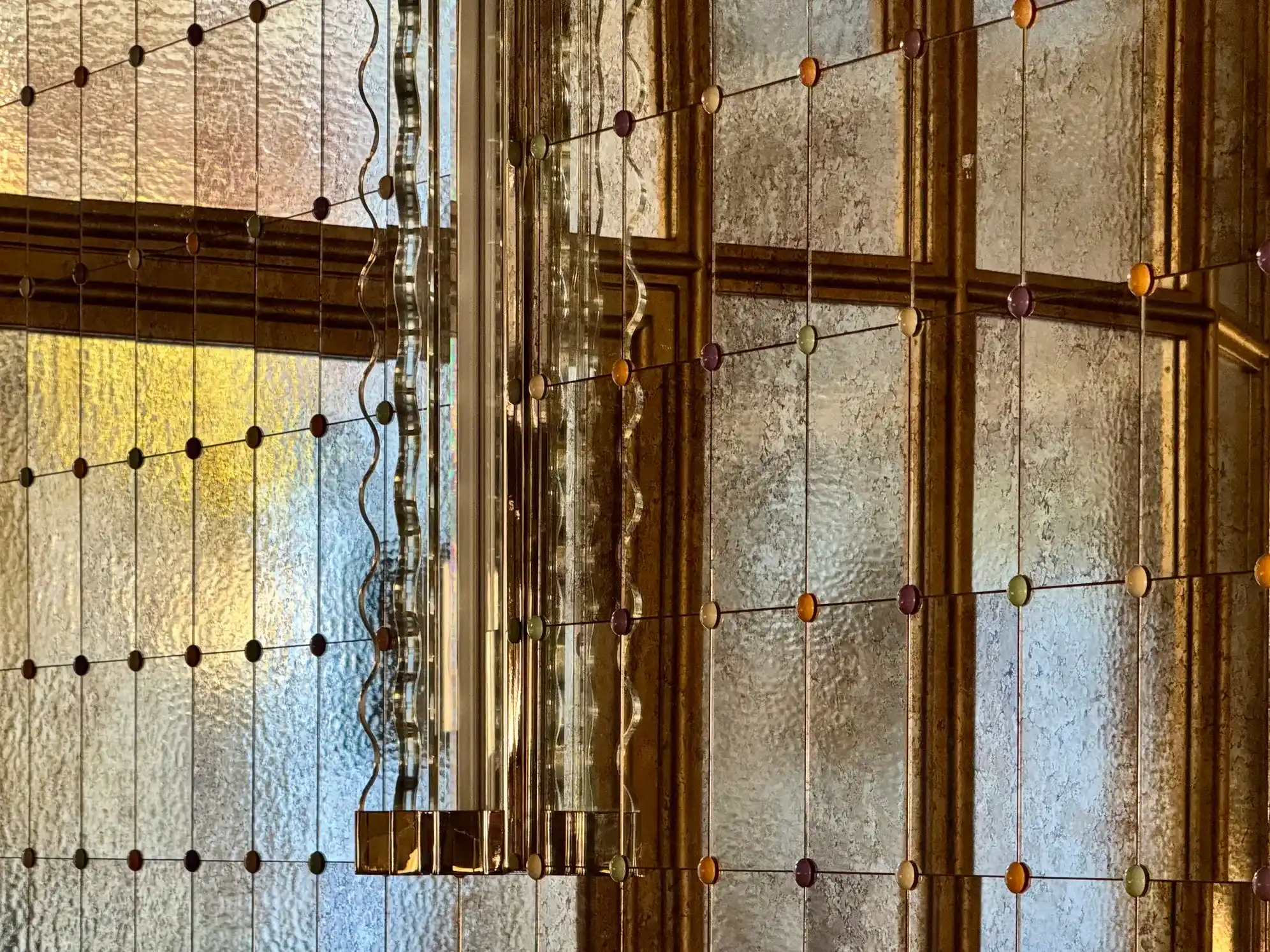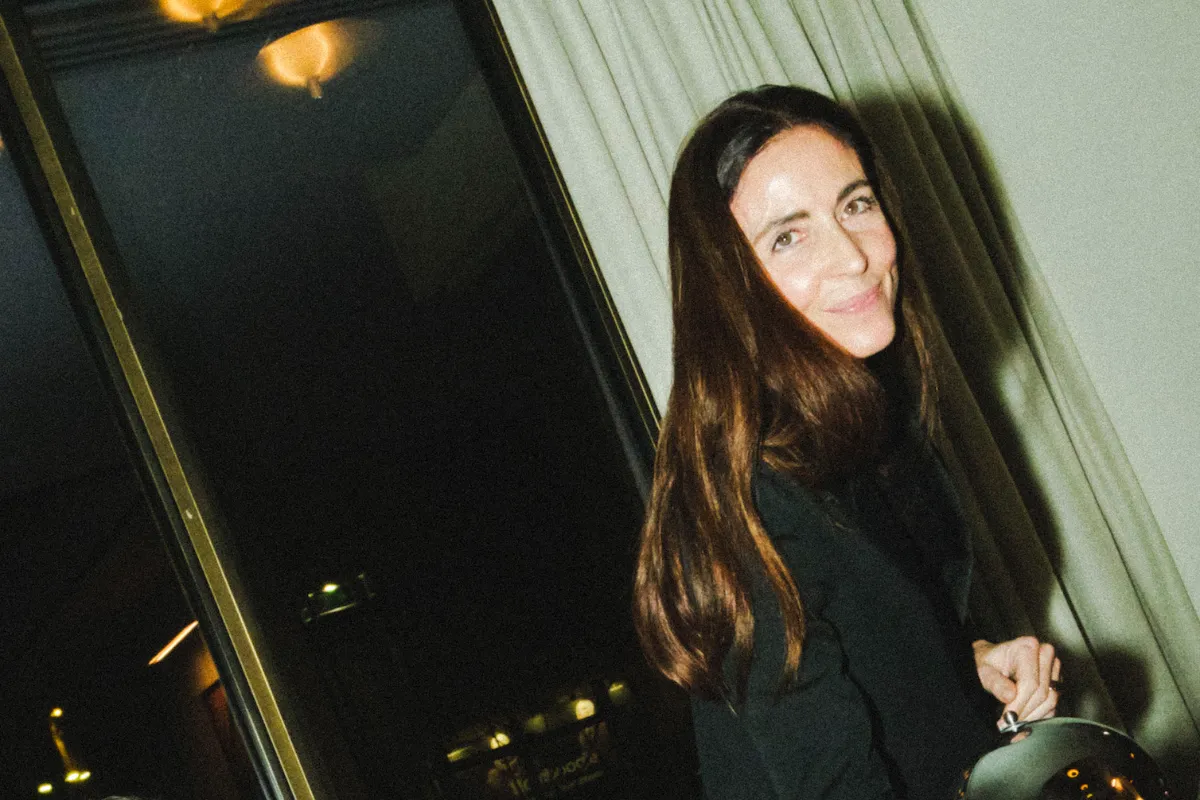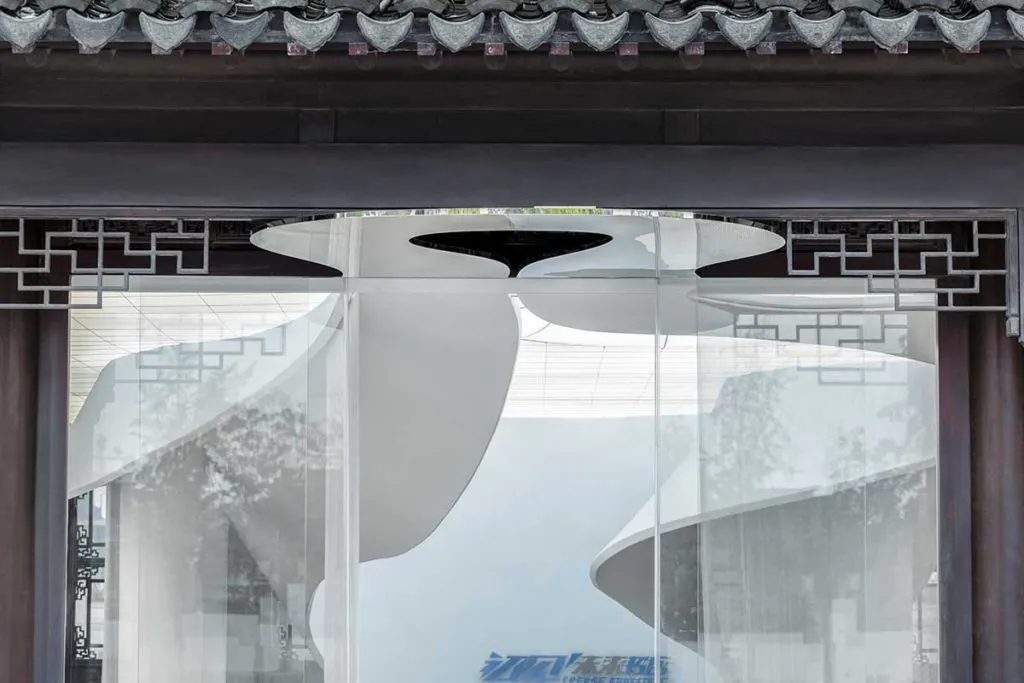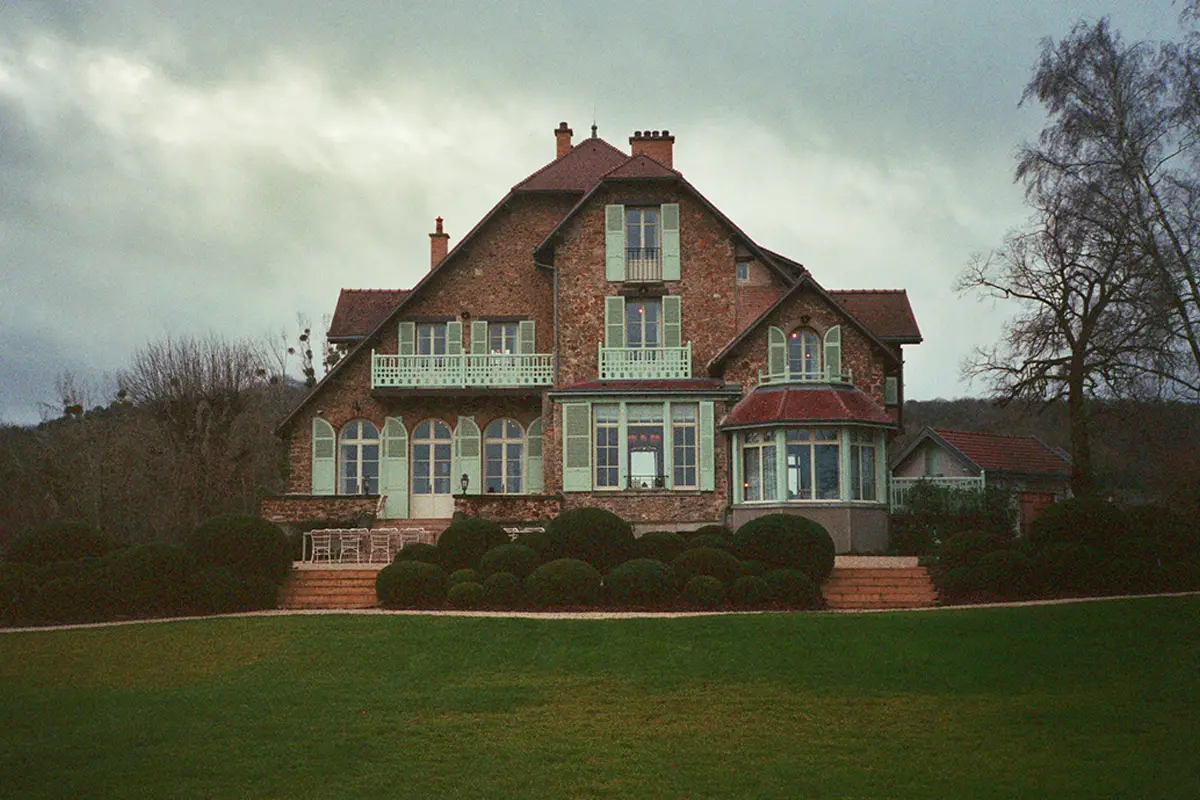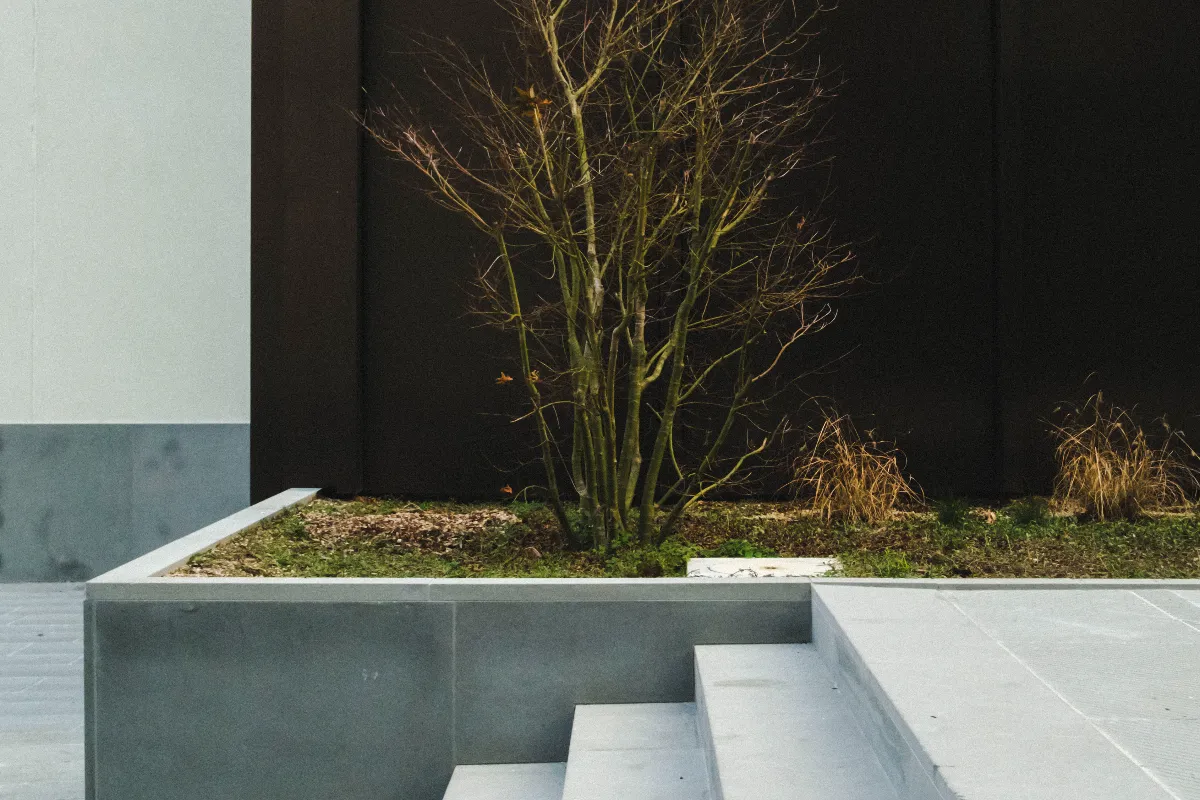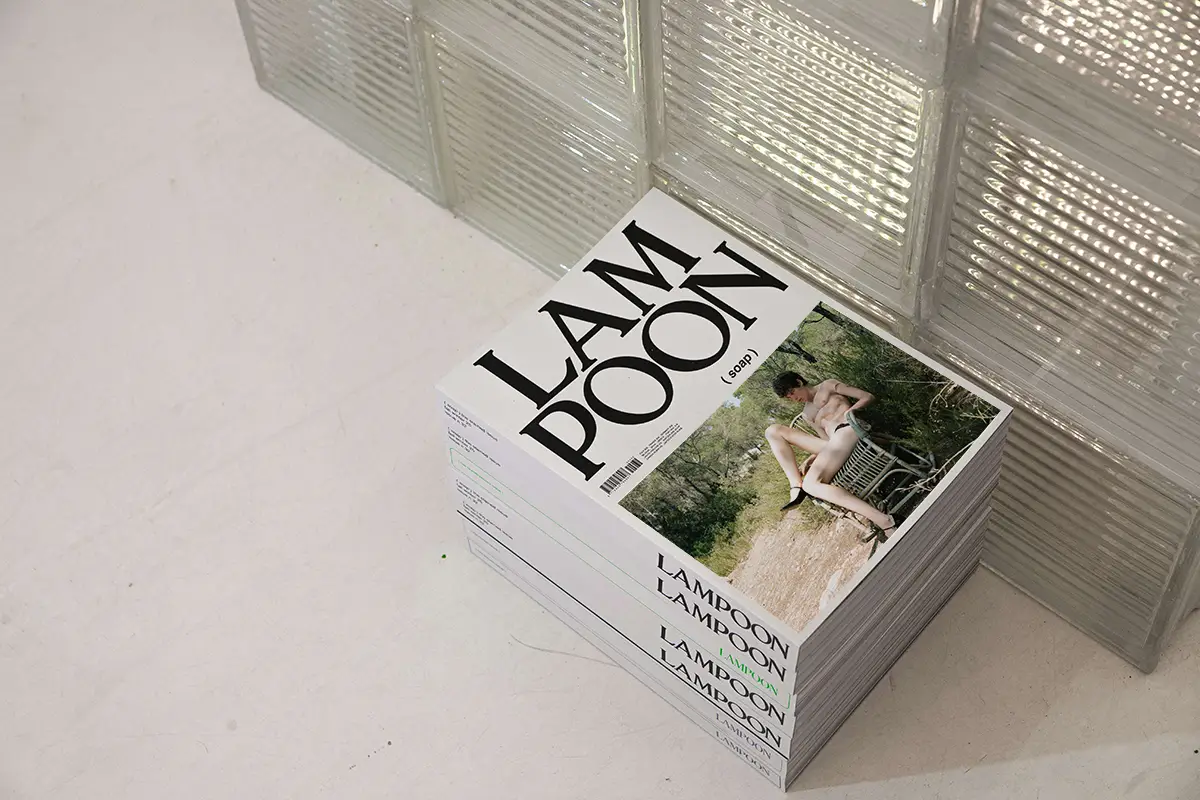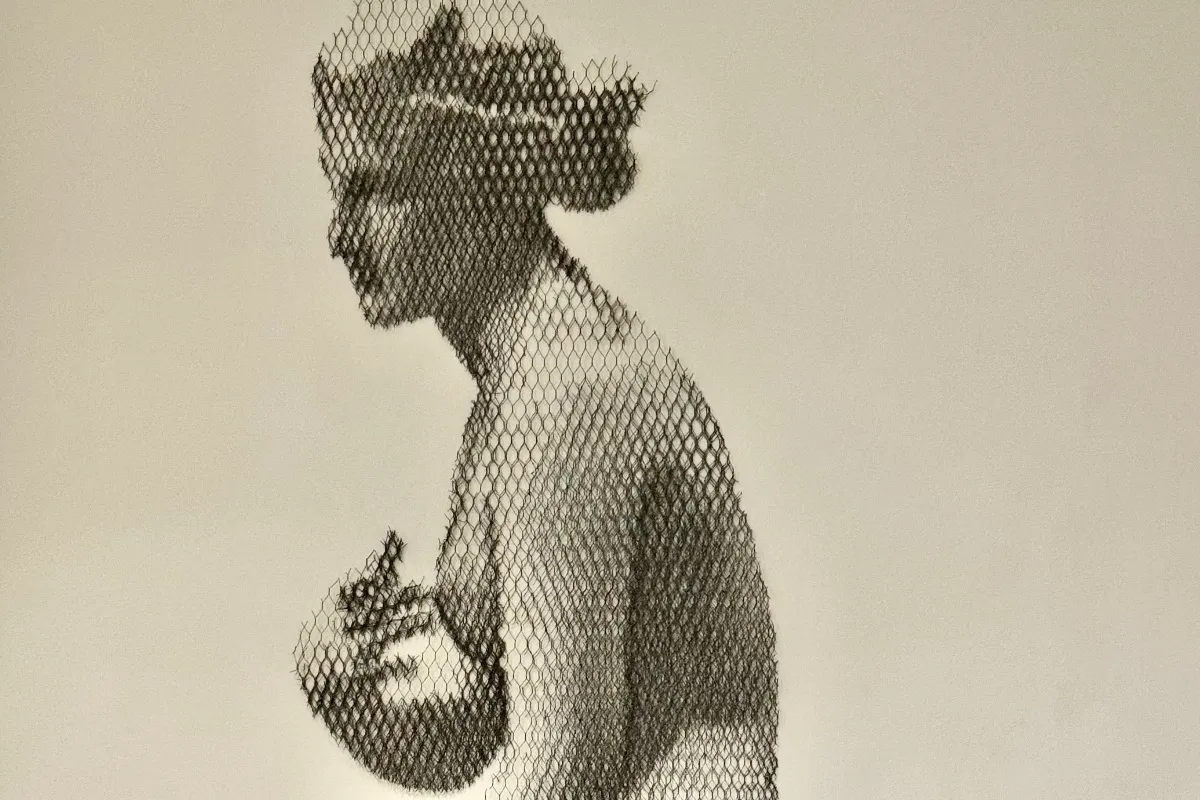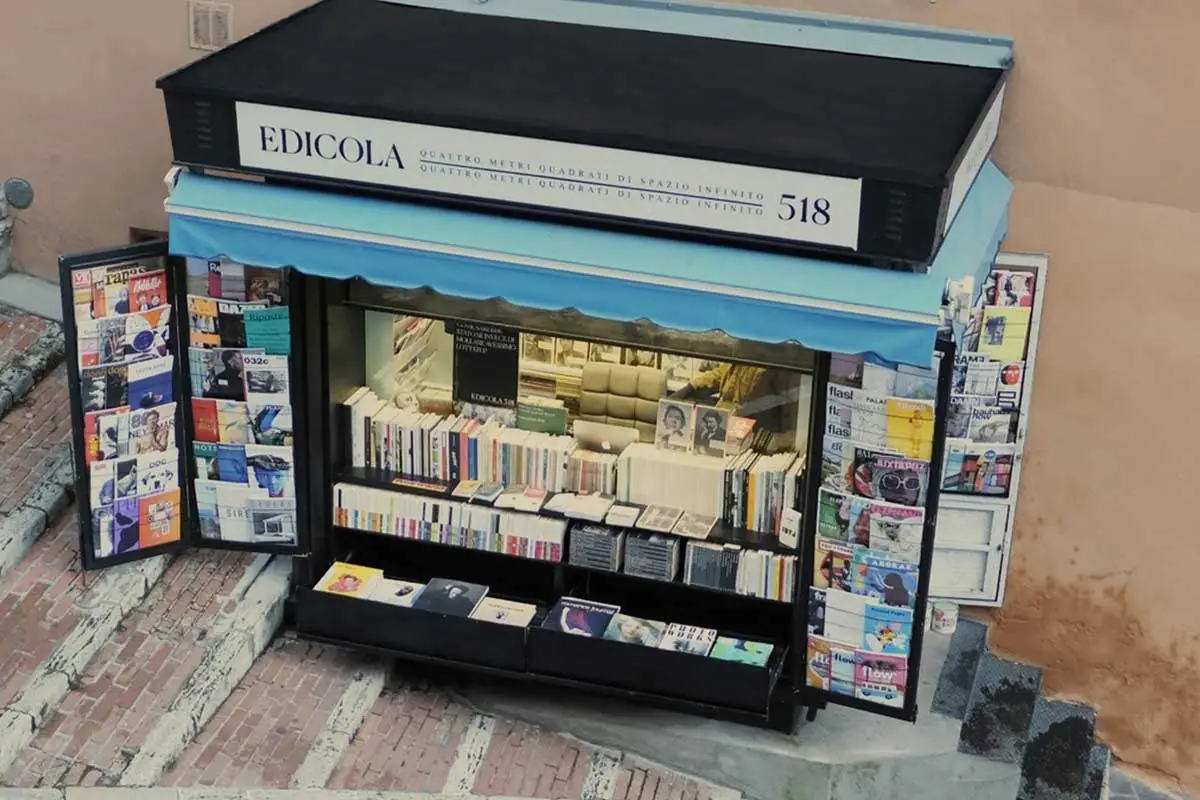
Edicola 518, Perugia. From the ashes of an abandoned kiosk
An unused kiosk rises to a life between art space and bookstore. Four square meters and an argument about independent publishing
Edicola 518: Perugia’s Indie Publication Point, Ten Years Later
In the center of Perugia, directly across from the Church of Sant’Ercolano, stands a small green kiosk that looks like a relic of another time. But this is no ordinary newsstand. Instead of newspapers or bus tickets, its racks hold independent magazines and books from all over the world — rare editions, small press publications, artist projects, and experimental design objects in print. Its name is Edicola 518, and for nearly a decade it has been one of Italy’s most fascinating cultural outposts: part bookshop, part artistic statement, part civic experiment.
When it first opened on June 1, 2016, Edicola 518 immediately attracted attention. The kiosk, one of Perugia’s historic stands dating back to the early 1900s, had been closed for some time when a group of artists, students, and writers from the city — united under the name Emergenze — decided to reclaim it. Their goal was not just to sell magazines, but to redefine what a newsstand could be in an era when most were vanishing from Italian streets.
From a Collective Idea to a City Landmark
The Emergenze group was founded in 2014 as a hybrid platform — part publishing house, part research collective, part urban intervention project. Its founders, including Antonio Brizioli, were then in their twenties and early thirties, recently graduated or still students, searching for a way to bridge their intellectual curiosity with real public life. “We were producing a magazine, curating projects, and creating a community,” Brizioli recalls. “At some point we felt the need for a place — a permanent, visible point where our work could meet people directly.”
They first considered an art space or a small independent bookstore. But in a city full of shuttered kiosks, the choice soon became obvious. “An edicola,” Brizioli explains, “is a place that everyone knows — it’s part of the city’s memory. Buying one and transforming it into something else felt like a symbolic act.”
So they bought one of the abandoned kiosks, on Via Sant’Ercolano, a steep street connecting the city’s lower and upper parts. Its position was both strategic and poetic — standing opposite one of Perugia’s patron saints, in a spot tied to the city’s founding legends. “It’s tiny,” Antonio says, “just four square meters. But our slogan has always been an infinite space. That contradiction captures our approach: we wanted to launch an ambitious artistic challenge from a minimal, everyday setting.”
Naming the Kiosk: A Number and a Statement
The name Edicola 518 came almost by accident. When Antonio went to meet the regional distributor that supplies newsstands across Umbria, he overheard someone say: “Those from 518 are here.” At first, he and his colleague didn’t understand what it meant. Later they discovered that each kiosk in the distributor’s database was identified only by a number — an anonymous point on a map. Their kiosk happened to be number 518.
Since they had no intention of following the traditional distribution network, they decided to adopt the number as their own name. “It was an ironic gesture,” says Brizioli, “a way of turning the system’s logic back on itself. We didn’t want to reject the old model completely — we wanted to reimagine it.” Thus Edicola 518 became both a place and a statement: a newsstand that sells no newspapers, a counterpoint to mass distribution, a celebration of independent culture on its own terms.
Perugia offered intimacy and continuity — the ability to grow roots rather than chase trends
After finishing high school in Perugia, Brizioli moved to Milan to study contemporary art history. Like many, he could have stayed in the city or gone abroad. Instead, after graduating, he came home. “Most of my collaborators are from Perugia,” he says. “We wanted to build something meaningful in a medium-sized city, not in a big metropolis. Perugia is a university town, open and international, yet still small enough to be personal. You can build genuine relationships here.”
That decision proved crucial. While Milan, Rome, or Berlin might have offered a bigger audience, Perugia offered intimacy and continuity — the ability to grow roots rather than chase trends. Over time, Edicola 518 became not just a place to buy books, but a cultural meeting point, a symbol of what a small city can achieve when imagination replaces resignation.
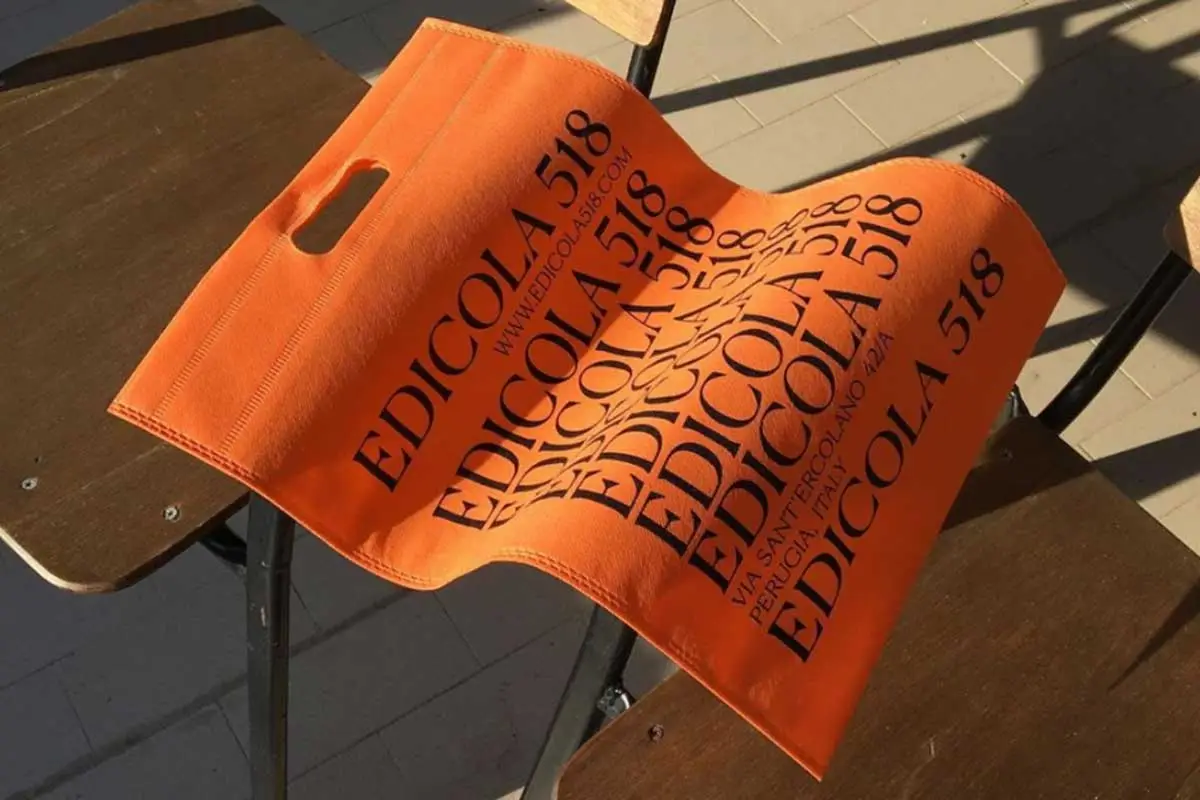
A World of Indie Publishing
Step inside the kiosk and you’ll find a dense mosaic of color, typography, and texture. Edicola 518 carries over 400 magazines and as many books, sourced from independent publishers across Europe, Asia, and the Americas. The range is dizzying: art, design, architecture, politics, anthropology, photography, and the indefinable zones in between.
Among Brizioli’s personal favorites is the Dutch magazine MacGuffin, subtitled The Life of Things. Each issue is dedicated to a single object — a bed, a window, a rope, a pair of trousers — and explores its cultural, historical, and emotional dimensions through essays and images. “It’s a perfect example,” he says, “of how design thinking can expand into storytelling.”
Another favorite is Migrant, a magazine that examines movement in all its forms — migration of people, goods, capital, and even ideas. Each issue is built around a color and blends academic essays with striking visual design. “It’s a brilliant combination of form and content,” says Brizioli. “It makes complex global issues readable and visually compelling.”
The Italian scene, too, has produced standout projects. Turin’s Archivio magazine publishes only non-digitized archival material, turning forgotten documents into new narratives. Sirena is printed on paper made from seaweed, thematically tied to the sea. Cartography, meanwhile, offers travel stories in three destinations per issue, mixing photography and reportage. Food-related titles like Dispensa and Cook_ink. treat gastronomy as a cultural language, where recipes become windows into identity and place.
“These are the kinds of projects that often struggle in Italy’s traditional retail system,” Brizioli explains. “Our publishing sector isn’t designed for this kind of work. But in a place like Edicola 518, they find their right audience. We give them a home.”
A Difficult but Conscious Journey
Running Edicola 518 has never been easy. “From day one, we’ve had to face skepticism,” Brizioli recalls. “People said it wouldn’t last — that nobody reads magazines anymore, that kiosks are dead.” And yet, against the odds, the project survived and grew. Today, it’s known well beyond Perugia, with invitations to national festivals and collaborations with institutions and artists across Italy. “Looking back,” says Antonio, “I see it as a small miracle. We’ve managed to create something sustainable — and that’s the real victory.”
Still, the challenges remain constant. “The collapse of newsstands is usually blamed on the digital era,” he says, “but it’s not that simple. The problem is structural: publishers rely on distribution models that give them no flexibility and very little return. We’ve shown that there’s another way, but it requires time, stubbornness, and local involvement. You have to literally build it by hand.”
Edicola 518: Sustainability and Independence
Unlike many cultural projects that depend on public funding, Edicola 518 has survived primarily through its own micro-economy. The founders purchased the kiosk with their savings, using the revenue from sales to sustain it. Over time, they’ve acquired additional small spaces in the city — storage, workshop, and gallery areas — to expand their activities.
“We’ve received grants here and there,” says Brizioli, “but we never rely on them. Public funding is fragile: it changes with administrations, and projects built on it often collapse when support disappears. We wanted independence, even if that meant growing slowly.”
This approach has paid off. In 2020, the founders formed a cooperative of four partners to stabilize the structure and share responsibilities. The goal was not to scale up or franchise the idea, but to ensure long-term sustainability. “We don’t want to be a chain,” Brizioli insists. “Each Edicola 518 must remain unique — rooted in its place, its people, its rhythm.”
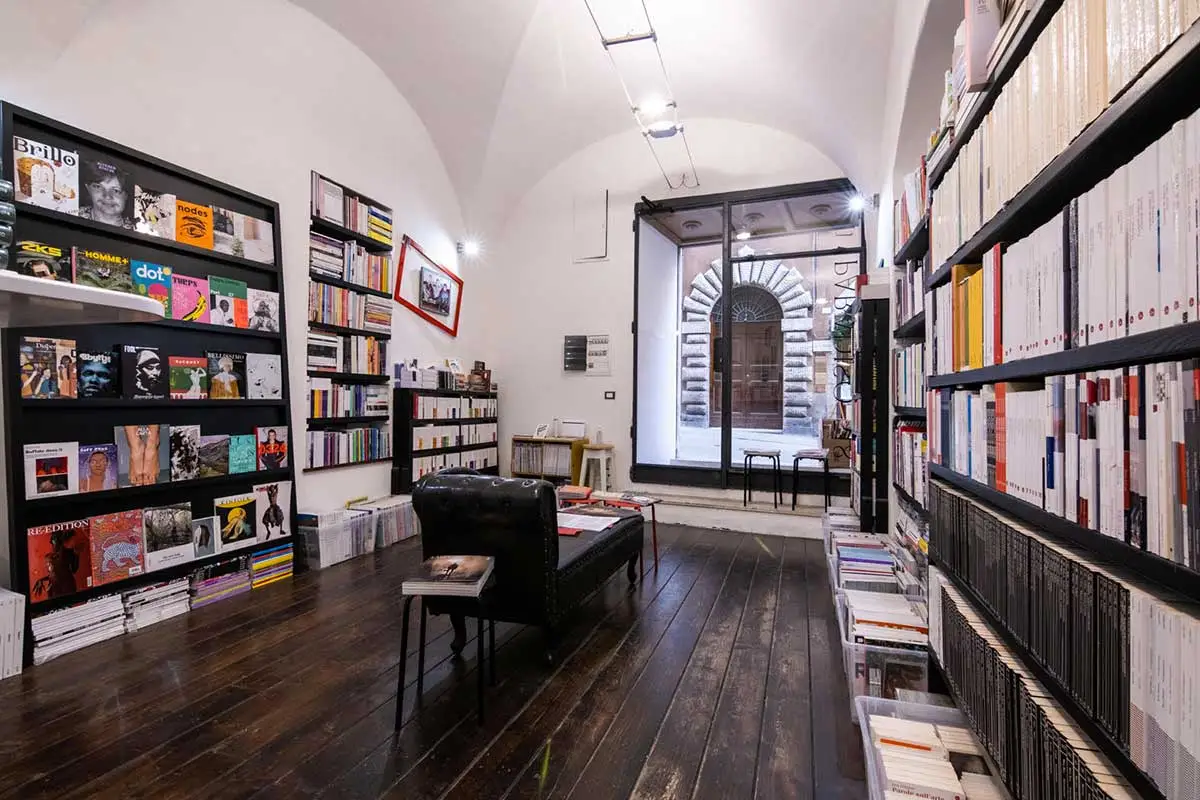
Edicola 518, Expanding Through Affinity, Not Replication
The model has nonetheless inspired others. In 2018, a similar space called Magwall opened in Venice’s San Polo district, born from a collaboration between Edicola 518 and a local leather boutique, Declare. One of the shop’s walls was dedicated entirely to independent publications — magazines, zines, and artist books. “It works because the people running it are local,” Brizioli explains. “They understood the spirit, not just the format. That’s what matters. It’s not about copying; it’s about sharing an attitude.”
Antonio believes that this network of sensitivity could expand organically — not as a franchise, but as a constellation of kindred spaces. “Our project can be adopted by others with a similar sensibility,” he says. “They don’t have to be identical. In fact, they shouldn’t be. If we became a chain, we’d lose the essence of what we are.”
Events, Encounters, and Cultural Life
Beyond the kiosk’s daily activity, Edicola 518 has become a cultural organizer in its own right. Each year, it curates a program of talks, presentations, and performances that has grown into a small but vibrant festival. Writers, artists, designers, and researchers are invited to Perugia to speak freely, with no entry fees or barriers. “The idea isn’t to promote magazines,” Antonio explains. “We use the presentations as a pretext to bring cultural reflection into the city — to make thinking a shared act.”
One of these encounters led to the publishing project Lezioni sull’Anarchia (Lessons on Anarchy), a series exploring the history and contemporary relevance of anarchist ideas. “For us, these parallel activities are not secondary,” Brizioli adds. “They are the heart of what we do. If the kiosk ever became just a shop — focused only on selling books — I would lose interest. The cultural work and the commercial side have to go hand in hand.”
#nopaura: The Kiosk’s Motto
Painted discreetly on the side of the kiosk, visible from those walking up from below, is a small hashtag: #nopaura — “no fear.” It’s become both a slogan and a talisman. “People often told us we were crazy or brave to do something like this,” Antonio laughs. “At first it was half-serious, half-ironic — but over time, it became our mantra. We work with that attitude: no fear. We don’t know what the future holds, but we keep going.”
That spirit — playful yet determined — defines Edicola 518’s identity. It blends irony, activism, and design awareness with a strong sense of community. Its presence on social media is lively but never commercial; its tone is as much poetic as political. Even as many kiosks have disappeared from Italian cities, this one has managed not only to survive, but to turn fragility into strength.
The Infinite Space
Nearly a decade after its founding, Edicola 518 has become something larger than a kiosk. It is a living metaphor — a small space that generates expansive conversations about publishing, design, urban life, and independence. It demonstrates that culture can grow from below, from persistence and passion rather than large institutions.
“Everything we’ve done,” Brizioli says, “comes from a desire to act, not to wait. We didn’t ask for permission. We just started.”
In 2025, Edicola 518 continues to evolve: hosting exhibitions, releasing new issues of Emergenze, and collaborating with festivals and universities. Yet at its core, it remains the same — a four-square-meter kiosk in the middle of Perugia, overflowing with stories, images, and ideas.
For those climbing the steps of Sant’Ercolano, it appears suddenly at the corner: small, green, inviting. On its side, the white letters still spell out the same phrase that has guided it since the beginning — no fear.
